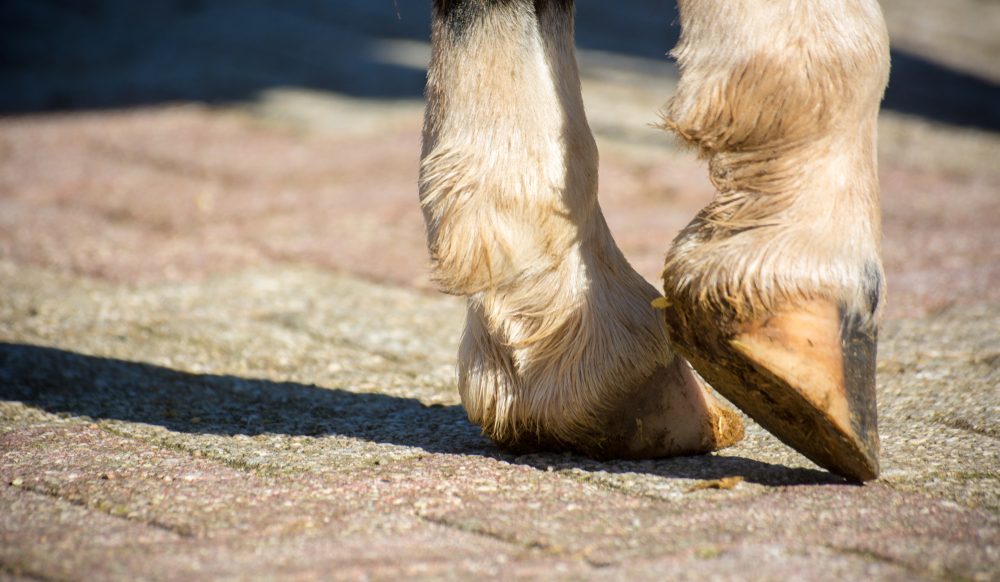
3 Essential Ways to Prevent Hoof Abcess in Horses
The first time one of my horses had a hoof abscess I panicked and thought he had a broken leg. He was that lame. He was pretty sure it was broken too lol.
Hoof abscesses are a common and painful condition that affects horses' hooves. They occur when bacteria invade the sensitive tissues within the hoof, leading to infection and the formation of pus-filled pockets. Fortunately, there are several measures you can take to prevent hoof abscesses and keep your horse's hooves healthy. In this article, we will discuss three essential ways to prevent hoof abscesses in horses.
Maintain Proper Hoof Care:
- One of the crucial factors in preventing colic is establishing and maintaining a consistent feeding routine for your horse. Horses have sensitive digestive systems that thrive on regularity. Abrupt changes in feeding schedules or diets can disrupt their digestive process and increase the likelihood of colic.
Here are three key aspects to focus on:
- Regular Hoof Care: Schedule routine visits with a professional hoof trimmer or farrier to trim and balance your horse's hooves. Regular trimming helps prevent imbalances and excessive pressure, reducing the risk of abscess formation.
- Clean and Dry Environment: Provide a clean and dry living environment for your horse. Wet and dirty conditions promote bacterial growth and increase the likelihood of abscesses.
- Balanced Diet and Nutrition: Ensure your horse receives a well-balanced diet rich in essential nutrients. A healthy diet supports strong hoof growth and overall hoof health. Good quality hay should form the basis of the horses diet.
Proper Hoof Hygiene:
- Maintaining proper hoof hygiene is crucial in preventing hoof abscesses. Here's what you can do:Regular Hoof Cleaning: Clean your horse's hooves daily or as often as possible to remove dirt, rocks, and debris and get air to the sole. Pay attention to the sole and the area around the frog. Regular cleaning prevents the accumulation of foreign objects that can cause hoof injuries and lead to abscess formation.
- Regular Hoof Cleaning: Clean your horse's hooves daily or as often as possible to remove dirt, rocks, and debris and get air to the sole. Pay attention to the sole and the area around the frog. Regular cleaning prevents the accumulation of foreign objects that can cause hoof injuries and lead to abscess formation.
- Adequate Exercise and Movement: Regular exercise and incidental exercise within their paddock helps promote healthy blood circulation in the hooves. Movement encourages the self-cleaning mechanism of the hooves and helps prevent the stagnation of bacteria that can lead to abscesses and other issues like Thrush.
- Appropriate Hoof Protection: Consider using hoof boots or shoes when riding on hard or uneven surfaces. These provide extra protection to the hooves and minimize the risk of bruising or injury that could lead to abscesses.
Early Detection and Prompt Treatment:
- Detecting and addressing hoof issues early is crucial in preventing abscesses from developing. Here's what to keep in mind:
- Regular Hoof Inspections: Inspect your horse's hooves regularly for signs of tenderness, heat, swelling, or unusual discharge. Early signs of abscesses may include sudden lameness or a strong pulse in the affected foot. If you notice any abnormalities, consult with your veterinarian or hoof care professional promptly.
- Proper Wound Care: If your horse sustains any hoof injuries, such as punctures or bruises, provide immediate and appropriate wound care. Clean the wound, apply antiseptic, and consult with your veterinarian to determine if any further treatment or preventive measures are necessary.
- Timely Veterinary Intervention: If an abscess does occur, seek veterinary assistance promptly. A veterinarian can provide appropriate treatment, such as draining the abscess and prescribing antibiotics if necessary. Early intervention helps alleviate pain and prevents further complications.
Preventing hoof abscesses in horses requires a proactive approach to hoof care, hygiene, and early detection. By maintaining proper hoof care practices, promoting hygiene, and addressing hoof issues promptly, you can significantly reduce the risk of abscess formation and ensure your horse's hooves remain healthy and pain-free.
For more essential Horse First Aid and Horse Health Care register now for the Horse First Aid Program
